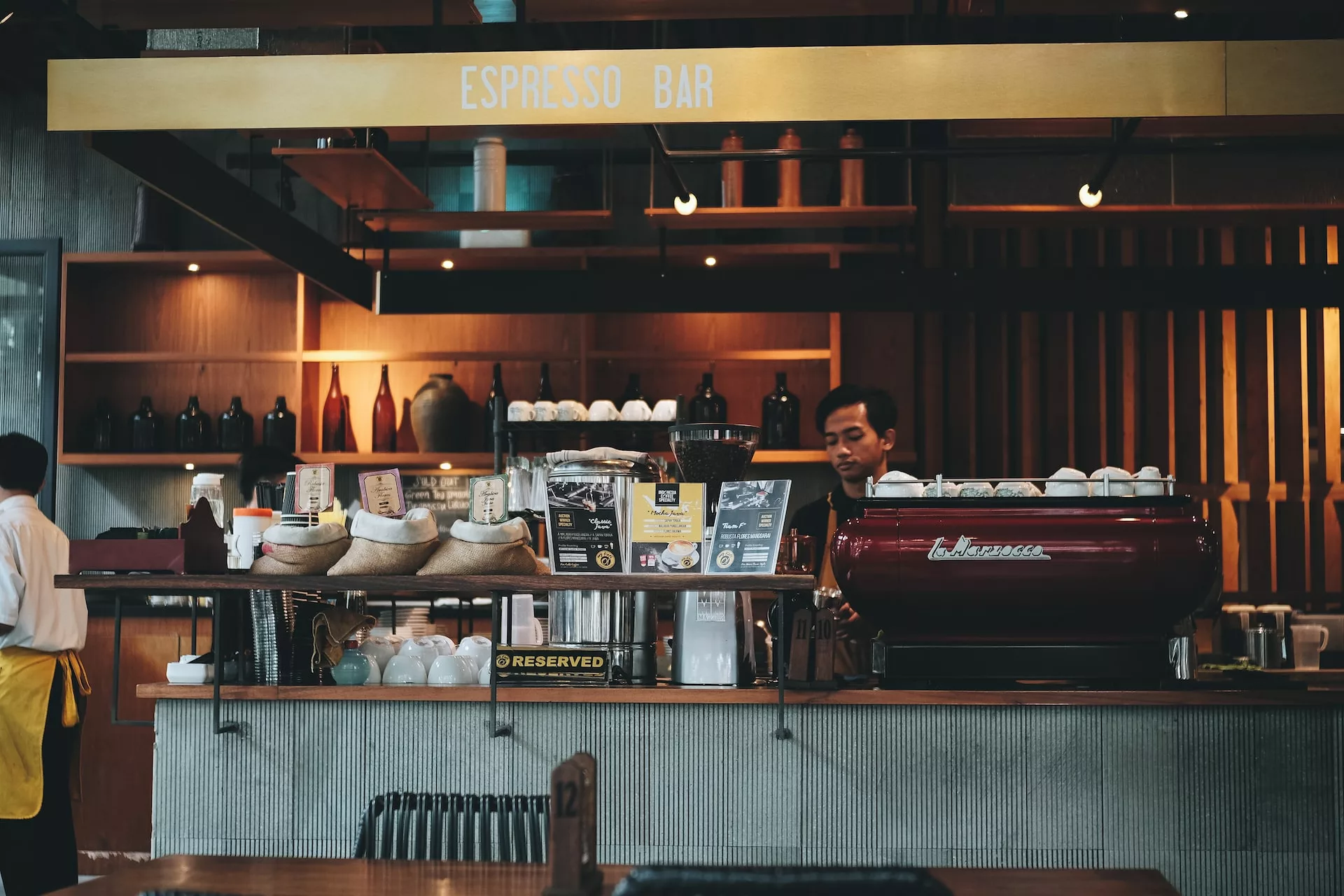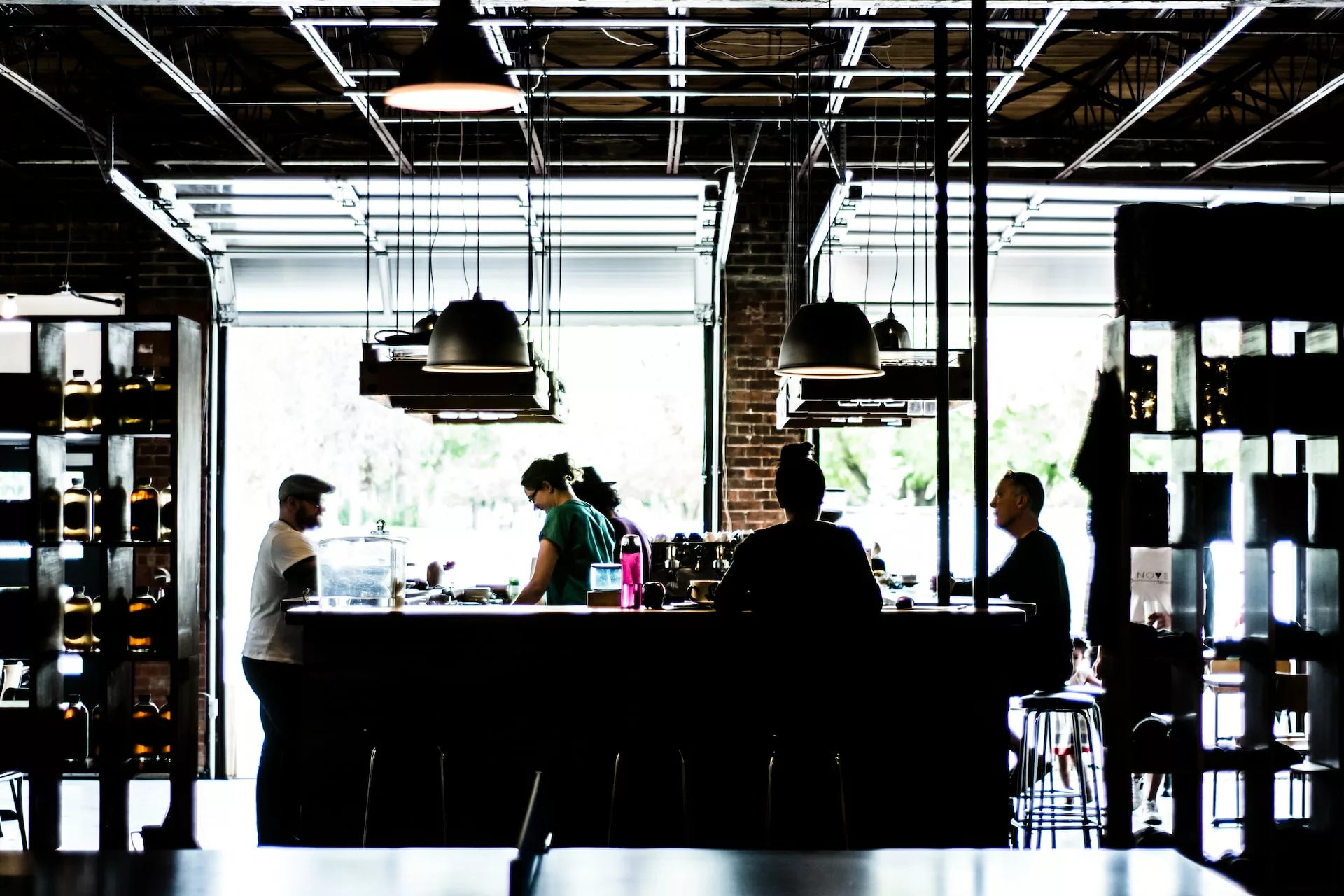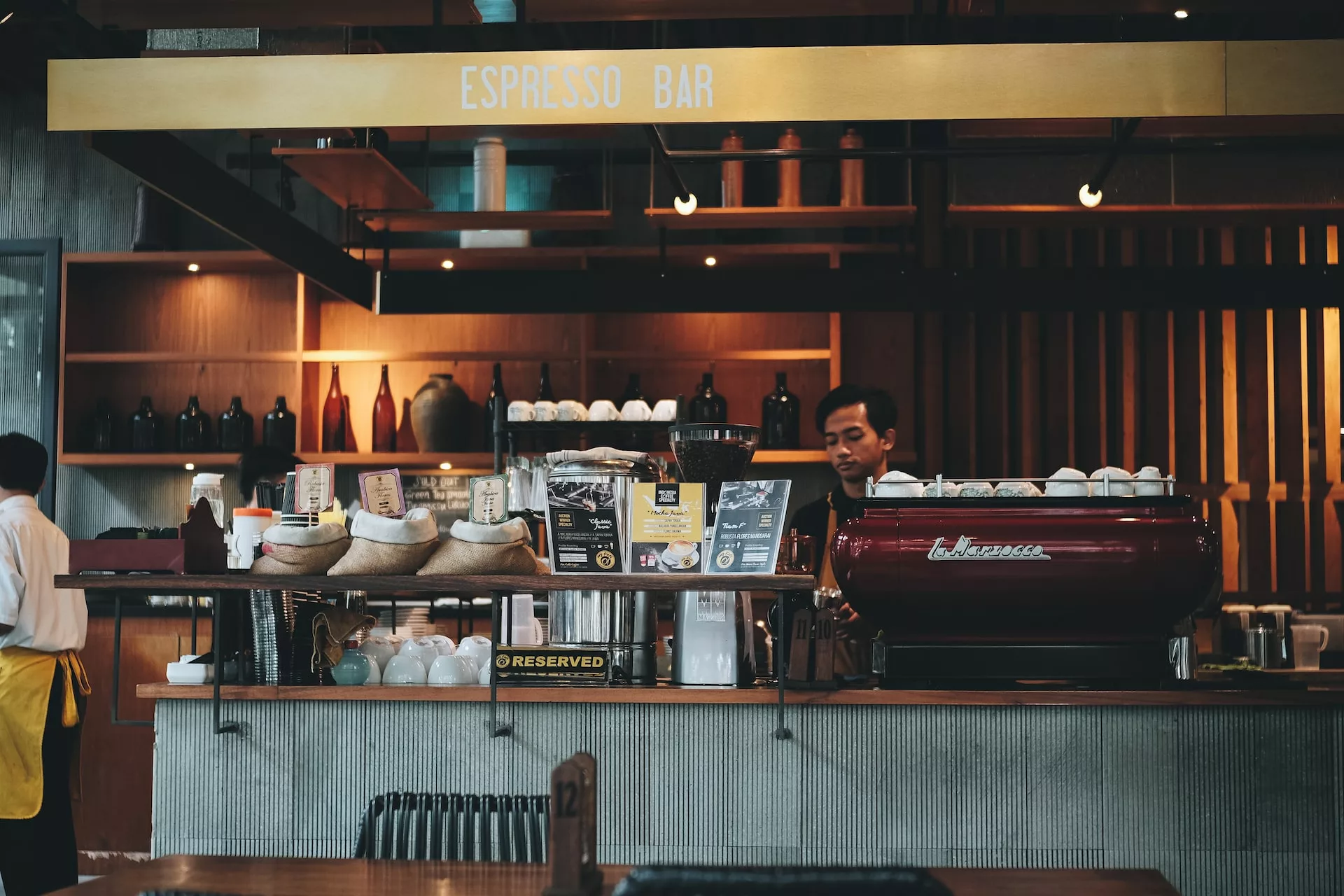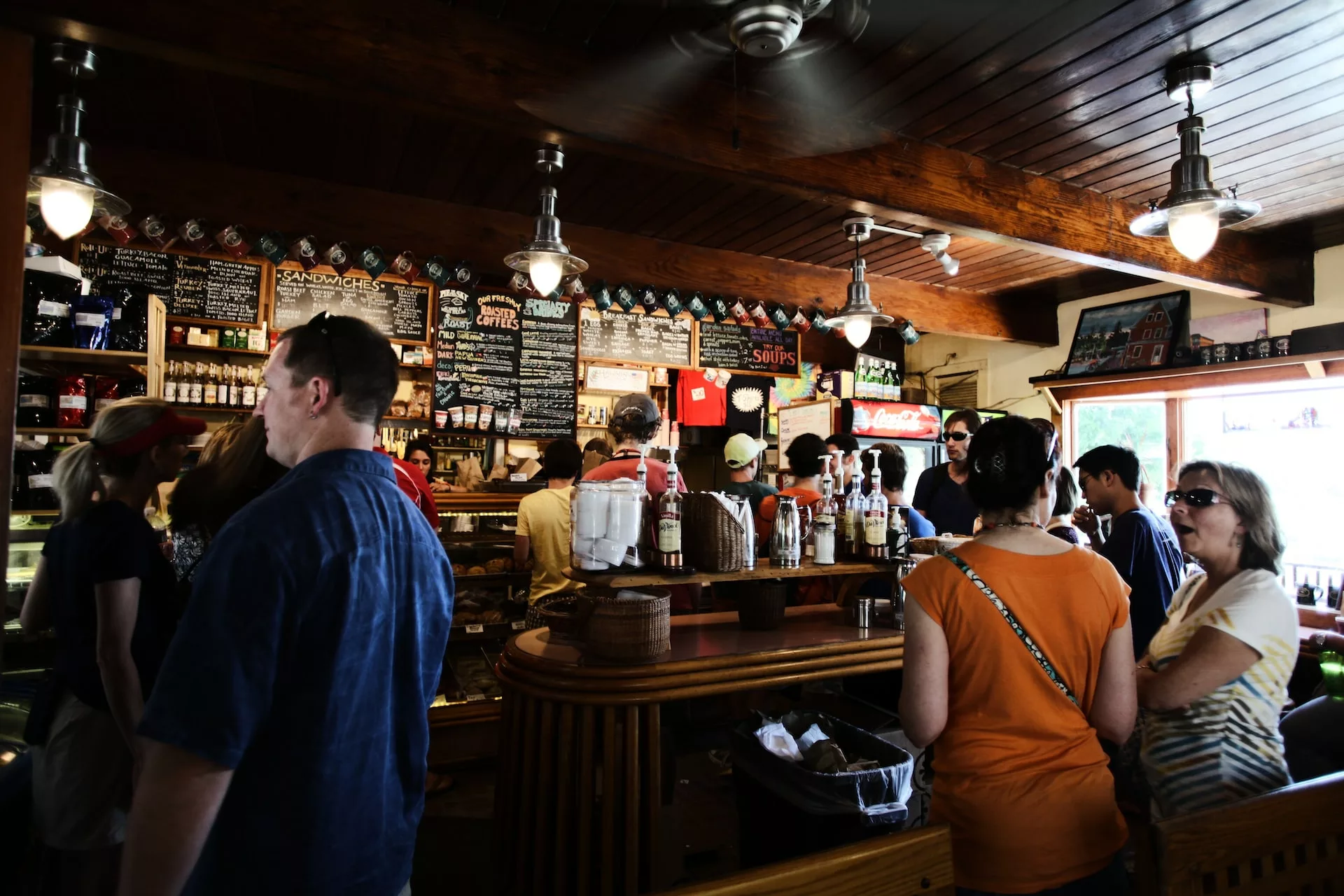Are you wondering if it’s possible to open a successful coffee shop without formal qualifications? Many aspiring business owners who are interested in the hospitality industry have asked this question, and the simple answer is “yes”. However, having qualifications can help ensure that your venture has a better chance of success. In this post, we’ll talk about what kinds of qualifications are essential when opening a coffee shop and discuss why they matter.
Requirements for opening a coffee shop
Starting a coffee shop requires careful planning and preparation. Understanding the regulations, permits and licensing processes nearby is critical to ensure that you don’t run into troubles when getting your business off the ground. Additionally, having barista skills and knowledge of coffee brewing techniques can help ensure that your customers are satisfied with their drinks.
Moreover, customer service experience is important for creating loyal customers who will return time and time again. Management skills are also essential in running a successful business as they help with making daily decisions, staying up-to-date on industry trends and managing staff.
Finally, some understanding of marketing strategies such as developing brand recognition, utilizing digital platforms and search engine optimization can prove invaluable in setting yourself apart from other businesses in the area.
It is possible to start a successful coffee shop without formal qualifications while having the relevant knowledge base and understanding will certainly increase your chances of success. Businesses require careful attention to every detail from handling staff issues to producing quality drinks – qualifications can come handy for this task for sure!

Do I need a degree to open a coffee shop?
It is possible to start a successful coffee shop without any formal qualifications or business degrees. However, having certain skills and knowledge can help you get off on the right foot and increase your chances of success. It is important to understand the regulations, permits and licensing requirements in your area as they vary from place to place. Additionally, barista skills and knowledge of coffee brewing techniques are essential for providing high quality drinks to customers.
Collaborating with other industry professionals such as baristas, chefs and marketers can also be beneficial in developing your business strategy. Furthermore, customer service experience is important for creating loyal customers who will return time and time again. Finally, it is worth considering acquiring an understanding of marketing strategies such as search engine optimization for generating visibility online, developing brand recognition and staying up-to-date on industry trends.
Ultimately, there are no hard and fast rules when it comes to starting a successful coffee shop – formal qualifications are not mandatory but knowledge and skill sets are still essential for becoming a successful entrepreneur in this industry. Although getting a business degree may be beneficial for some people, you do not need one if you have the necessary skillset to run a profitable café business.
Requirements for starting a coffee shop
Starting a coffee shop requires careful planning and preparation. It may not be hard to open a coffee shop, but there are things you need to know. Understanding the regulations, permits and licensing processes nearby is critical to ensure that you don’t run into any trouble when setting up the business. Additionally, having barista skills and knowledge of coffee brewing techniques can help ensure that your customers are satisfied with their drinks. Moreover, customer service experience is important for creating loyal customers who will return time and time again.
Furthermore, management skills are also essential in running a successful business as they help in making daily decisions, hiring coffee shop employees, staying up-to-date on industry trends and managing staff members. Financial literacy is another key element when it comes to starting a business – understanding basic accounting procedures as well as knowing how to budget for operational costs can be extremely beneficial in keeping your business afloat during the early stages of opening. Additionally, some understanding of coffee shop marketing strategies such as developing brand recognition, utilizing digital platforms and search engine optimization can prove invaluable in setting yourself apart from other businesses in the area.
Of course, having excellent interpersonal skills is incredibly important when dealing with customers and suppliers alike; this means being able to communicate effectively and deal with any issues that may arise promptly. Finally, leadership qualities like decisiveness and resilience should be nurtured if you aim to create a thriving coffee shop that runs efficiently.
While formal qualifications are not mandatory when starting a coffee shop there are still a variety of skillsets required to give yourself the best chance of success. With enough dedication and hard work it is possible for anyone to create a successful café business – but it does take careful planning and persistence!

Do I need a food handler permit to start a coffee shop?
The answer to this question depends on a variety of factors including the location of your café and the local government regulations. Most regions require that food handlers in commercial establishments must obtain a valid permit or certification prior to handling any food. This ensures that all staff members have some knowledge of basic food safety principles, such as how to prevent food contamination, how to store foods properly, and more.
When opening a coffee shop it is essential to be aware of the requirements for obtaining a food handler permit in your area. Generally speaking, most states require that all employees who come into contact with foods must acquire a valid permit before working in their respective eatery. Depending on where you are located, there may be special courses or certifications for specific types of foods. For example, some jurisdictions may require baristas who handle milk-based beverages to complete additional training classes on dairy safety and espresso machine cleaning protocols.
It is also important to remember that certain permits may need to be renewed every few years depending on circumstances and regulations so it is best to check up with your local government offices ahead of time. Lastly, even if you don’t require a permit yourself in order to open your café it is still advisable that all staff members acquire one – especially those who handle any type of food items instead opting for gloves and proper hygiene practices at all times instead.
In conclusion, whether or not you need a food handler permit in order to start a coffee shop varies depending on location and regulations; however, it is always wise to ensure that proper safety measures are implemented by having any workers who come into contact with foods obtain the necessary certification ahead of time.
Coffee Shop practical experience
Generally speaking, it is not necessary to have formal qualifications in order to open a coffee shop, but having practical experience can certainly be an asset. Knowing the basics of how a café operates and what’s involved in running one on a day-to-day basis can be incredibly beneficial when launching your own business.
For instance, some basic understanding of barista skills like grinding coffee beans correctly and operating espresso machines are essential competencies for any aspiring café owner. This means taking the time to learn the nuances surrounding brewing techniques, beverage presentation and even hygiene practices behind each drink. Furthermore, customer service experience can also be invaluable; learning how to interact with customers on a friendly level and making them feel at home will create long-term loyalty with customers which will help keep your café afloat during its infancy. Coffee shop customers have come to expect a certain level of customer service.
In addition, managing staff members is another important component in running an efficient business – this means understanding strategies such as how to motivate employees, lead by example and achieve measurable outcomes. It’s also important to understand financial literacy basics such as budgeting for operational costs so that you don’t end up overspending on things like rent or supplies. Finally, being aware of marketing tactics such as using social media platforms and SEO (Search Engine Optimization) can be instrumental in making sure people know about your café and its offerings!
At the end of the day it is possible for anyone without formal qualifications to open their own coffee shop provided they have enough dedication, commitment and hard work. However, having practical experience under your belt when it comes to creating drinks, addressing customer queries professionally, managing staff members effectively or recruiting loyal customers will definitely give you an edge when setting up a business. So if you’re thinking of taking the plunge into entrepreneurship get out there and start learning today – it could make all the difference tomorrow!
Barista and coffee roasting certifications
When it comes to opening a coffee shop, having the right qualifications can make all the difference in being successful. While it is not strictly necessary to have certifications or qualifications for barista and coffee roasting skills, having them can give you the edge when launching your café business.
Barista certifications are designed to equip aspiring individuals with basic knowledge of grinding coffee beans, tasting attributes of various espresso drinks, working an espresso machine and understanding how to create latte art. Credentialing organizations such as SCA offer online and classroom-based courses so that aspiring baristas will be able to execute their skills proficiently and professionally. Furthermore, this certification also gives recognition by employers which can be a great boon if you’re looking for employment in a high-end café.
In addition to barista certificates, there are also roasting courses which teach everything from sourcing green coffee beans from around the world to developing profiles for different types of beans. These courses typically involve practical experiments in order to practice creating repeatable roast cycles along with further theory surrounding topics such as how aromas develop during the roasting process and how this affects flavor development post brewing. Some of these classes may even be organized by specialty coffee shops so that students get hands-on experience within existing cafés.
Ultimately, while obtaining certifications or qualifications is not mandatory when starting up a café business, having them certainly helps set yourself apart from other entrepreneurs who may lack these specific skillsets. As long as you have enough dedication, commitment and willingness to learn – becoming certified in either barista practices or roasting techniques is definitely doable!
To summarize, it is possible to open a successful coffee shop without any formal qualifications. However, having knowledge and understanding of business regulations, licensing and permitting processes, barista skills and coffee brewing techniques, customer service and management experience as well as marketing strategies can help ensure that your venture has a higher chance of success. Ultimately, qualifications matter when opening a coffee shop because they give you the necessary tools to help make your business flourish.
More Coffee Shop Articles
Should I find a partner for my new Coffee Shop?
Launching a coffee shop can be an overwhelming task, especially if you have limited resources. Finding the right partner can be an invaluable asset to your business and help you reach your goals faster. In this post, we’ll discuss when it’s a good idea to find a partner for your coffee shop business.
Hit the Ground Running: How to Accelerate Your Coffee Shop Startup
Starting a new business is an exciting but daunting undertaking. If you want your coffee shop to take off and reach its full potential, it’s important to hit the ground running. In this post, we’ll explore how to accelerate your coffee shop startup by addressing key areas like planning, marketing, and operations.
What Professional Services Do I Need to Start My Coffee Shop?
Starting a coffee shop is a big undertaking, and it’s important to make sure you have the right professional services in place. In this post, we’ll explore what services you need to help make your dream of owning a coffee shop a reality.
5 Secrets to Local Marketing for My Coffee Shop
Local marketing is the key to success for any small business – especially a coffee shop. In this post, we uncover five tips and tricks that can help drive more customers through your door and boost your revenue.
Reducing Risk: Insurance Options for My Coffee Shop
Choosing the right insurance coverage for your coffee shop is an important part of reducing risk and protecting your business. Taking time to review available options and weigh the costs against potential risks can help ensure that you have the best coverage possible.
How Do I Get a Business License for My Coffee Shop?
Are you planning to open your own coffee shop? Make sure you know how to get a business license first! This post will explain step-by-step how to get the right license for your bustling cafe.
How Do I Find the Right Location for My Coffee Shop?
Opening a coffee shop is a big decision, and it all starts with finding the perfect location. In this post, we’ll take a look at what goes into choosing the ideal spot for your coffee shop business.
5 Mistakes Coffee Shop Entrepreneurs Make
Starting a coffee shop can be a daunting but rewarding task. But without the proper preparation, entrepreneurs can easily make mistakes that could prevent them from achieving success. This post covers five common pitfalls coffee shop owners should look out for to ensure they do not fall victim to them.
How to Find Funding to Start a Coffee Shop
Are you ready to become your own coffee shop owner? There are many ways to finance a new business, and this post will discuss how to find funding for your coffee shop dreams.










